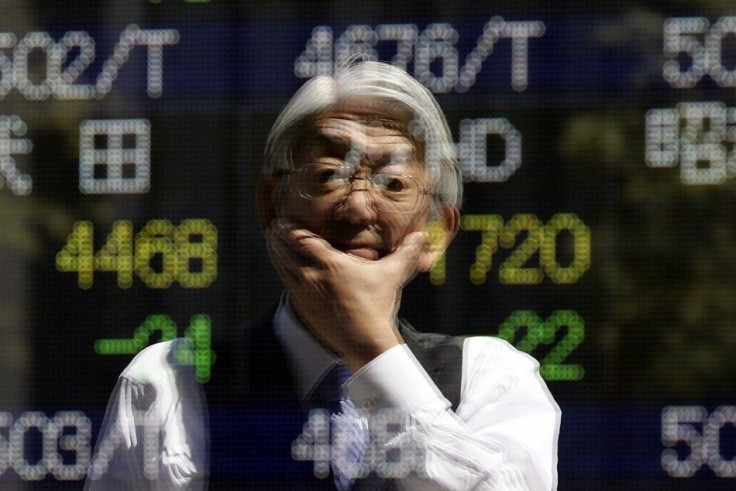Fat Fingers Cause $617 Billion Bad Orders In Japanese Stock Exchange

A fat finger caused $617 billion bad orders on Wednesday at the Japanese stock exchange. Fortunately, the amount was cancelled before it was matched, otherwise, it could have caused a disaster in the financial markets because of the huge amount involved.
In 2012, a similar incident caused by pressing the wrong key and not checking the amount before sending the order also caused US firm Knight Capital Group to go bankrupt, Bloomberg reports. Computers at Knight Capital send massive orders that couldn't be cancelled to US exchanges.
In 2009, a trader wrongly ordered 3 trillion yet worth of UBS convertible bonds issued by Capcom, while in 2005, failure to cancel a mistyped order for J-Comm cost Mizuho Financial Group 27 trillion yen.
In the Wednesday incident, the biggest transaction involved order for 1.96 billion shares of Toyota Motor, equivalent to 57 per cent of the carmaker's outstanding shares by value in an off-exchange transaction. There were also cancellations for 40 orders for shares of Honda Motors, Canon, Sony and Nomura Holdings.
Since off-exchange or over-the-counter trades are done directly and are not overseen by the bourses, errors require brokers to file a report within five minutes of placing an order. The 2012 incident caused a 12-month review of brokerage procedures by the US regulator, while the Wednesday incident reopened questions about accountability, said Gavin Parry, managing director of Parry International Trading in Hong Kong.
"It is not rocket science that there was a fat finger here ... There is a probability a broker mistook the number of shares for the value of shares," Parry said.
Business Insider cites another report that states the huge order is "the most extreme example of a trader in financial markets inputting hopelessly wrong figures while working under intense pressure."
In stock trading as well as other financial transactions, double checking data before clicking the send button would avert problems caused by fat fingers. With touch screen features of smartphones, fat fingers is also the cause of a lot of misspelt words or wrong amounts in text messages. And the solution for smartphones could possibly be applicable to PCs used by trading houses as well.
YouTube/Dinopop1983






